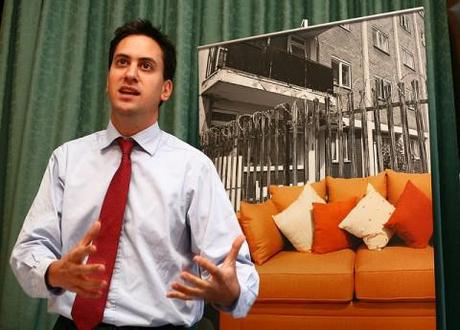
Ed Miliband, Labour leader. Photocredit: net_efect http://flic.kr/p/3LbTmt
The background
English and Welsh local elections have given Labour a series of victories, giving the party control of some councils such as Birmingham and Cardiff, reported the BBC. They are on course to win 700 seats. Labour are predicted to take a 39 per cent share of the vote, which is up three points, and the Conservative Party is predicted to take 31 per cent, down four points. The Liberal Democrats, meanwhile, remain unchanged, with 16 per cent, though they now have fewer than 3,000 councillors for the first time since 1988. The UK Independence Party took its best ever share of the vote – 14 per cent, whilst George Galloway’s Respect Party gained five councillors in Bradford, unseating the Labour leader. Turnout was very low, at a mere 32 per cent – fewer than 1 in 3 people. Voters also ignored David Cameron’s proposals for elected mayors in four of the ten cities voting on the issue (the other six are yet to declare.)
Polls currently predict that in London Boris Johnson will remain Mayor. Whilst Labour have won many seats in the South East and the Midlands, they are thought to be under pressure from the Scottish Nationalist Party in Scotland, where results have yet to come in. Commentators say that whilst it’s good for Labour in the short term, it doesn’t necessarily follow that they are on course to win a general election; meanwhile, support for lesser parties and low turnout demonstrates increasing disillusion and dissatisfaction.
“Politics is unpredictable, voters volatile. Cameron, however, is increasingly isolated. Dave’s running out of friends in his own mate-ocracy,” stormed Kevin Maguire in The Mirror.
Labour on course to win general election?
The Shadow Attorney General, Emily Thornberry, was quoted on the BBC: She said that whilst Labour ought not to rest on its laurels, it was pleasing that the party had gained back the public’s trust. And these votes, said Kevin Maguire on The Mirror, show that people have “seen through Lord Cameron of Downturn Street.” Yet, said Dan Hodges in The Telegraph, people’s “doubts about Ed Milliband” are hardly “being assuaged.”
Just a mid-term blip
The Conservatives, however, said that the results were typical for a mid-term government. Eric Pickles, the Local Government Secretary, said the results were only to be expected: “”When a party is rock bottom there’s only one way to go. But I’m not seeking to rain on Labour’s parade,” he said, quoted on The Telegraph. Tories have blamed the results on many things, including support for gay marriage and Lords reform; they are expected to call on Cameron to be more Conservative.
What the results mean
Nick Robinson on the BBC said that the vote was of “national consequence.” Labour Party Ed Miliband’s leadership is “now secure”, whereas the Tories have called on David Cameron to lead a more Conservative government, and Nick Clegg, the Lib Dem leader, will be asked to put distance between his party and the Tories. Though Boris Johnson may yet win, which would prove difficult for Cameron, “these elections are a recipe for renewed Labour confidence and greater Coalition tensions.”
The rise of UKIP, Respect and the SNP, and voter alienation
James Forsyth on The Spectator said that UKIP’s good results show the consequences of the party’s wider agenda, and also that many right-wingers have become “disillusioned” with the coalition. But those UKIP voters, said Dan Hodges in The Telegraph, will “grudgingly” return to the Conservative party fold, come election time. Bradford, on the other hand, is a “basket case”, whilst the SNP will embarrass Labour in Scotland. George Eaton on the New Statesman’s Staggers blog said that the real story was the exceptionally low turnout. He said this showed voter alienation – this can especially be seen in the rejection of elected city mayors. People “don’t want more politicians.”

